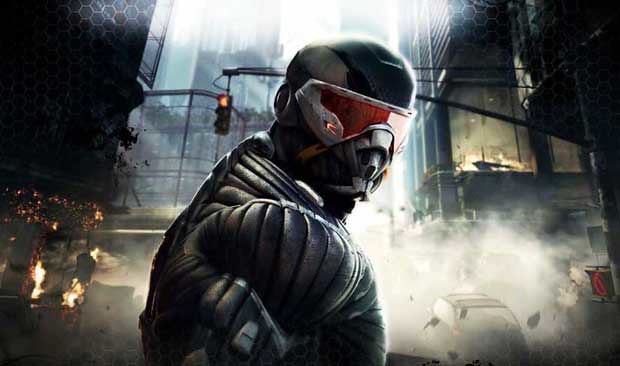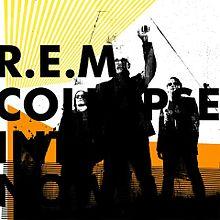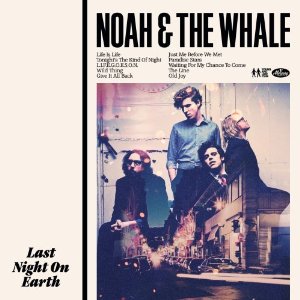Tuesday, 31 May 2011
Developed by Crytek
Published by Electronic Arts
Genre First Person Shooter
Platform PC, Xbox 360, PS3
As one of the first AAA videogame titles this year, Crysis 2 shouldered the great weight of expectation that exceeds even what one would expect for the sequel of such a critically and commercially acclaimed title. Crysis redefined the first person shooter genre and set a new benchmark for technical achievement, could even the best of sequels hope to match up to either of these achievements?
In one regard Crysis 2 succeeds easily, in that Crytek have once again set a new standard for visual quality. Crysis 2 is beautiful, and will tax even the most powerful of machines if you're a PC gamer. The only flaw is the absurd overuse of motion blur that makes everything look like you're wandering through some exaggerated dream, even in moments of inaction. Fortunately this effect can be easily deactivated via the console.
In terms of gameplay however Crytek have made some interesting design choices. First the setting has been changed drastically from the Far Cry-esque tropical jungle of the original to an urban one, set in the burning rubble of an under-siege New York City.
This is a pretty big deal because of the surprising ramifications it has on gameplay. Whereas Crysis brought a uniquely open world approach to first person shooters, with large maps designed to encourage exploration multiple different styles of play, Crysis 2 is far more narrow and linear in it's structure. The new levels are still large enough to allow for multiple strategies and a fair bit of route planning, but certainly nothing like the first game.
Similarly efforts have clearly been made to streamline and simplify gameplay. Usually when game developers do this it concerns me, as many don't seem able to tell the difference between "streamlined" and "dumbed down" (see Civilization V for a perfect example), but fortunately Crytek seem to be on the right page here and have pulled off something of a technical marvel in accommodating the range of gameplay styles and "nanosuit" functions that made the original so entertaining, but in a far less cumbersome fashion. Far from dumbing down proceedings, the core gameplay in Crysis 2 is a far more focused and enjoyable affair than its predecessor.
In terms of storyline, well if you're playing Crysis 2 for the narrative then you're barking up the wrong tree. It's typical sci-fi blockbuster fare, with the aliens that were discovered during the events of the original now converging upon civilisation in a full blown invasion. It lacks some of the suspense and mystery that made the opening chapters of Crysis so intriguing, in exchange for full on action; guns, explosions and carnage. This is not necessarily a bad thing for a game like this.
The end product is a familiar yet inventive cinematic videogame, which sets new heights for videogame graphics and manages to focus and improve upon the gameplay of the original, perhaps at the expense of some of the distinctive open-world features which characterised it. In terms of making a lasting contribution to the genre, this game is more an evolution on a winning formula than a real step forward, but considering how good it is, we should be willing to forgive that.
Loves:
Eye-poppingly good graphics
Slick gameplay
Excellent balance
Hates:
More narrow level design
Not as groundbreaking as the original
Sunday, 29 May 2011
Directed by Duncan Jones
Written by Ben Ripley
Starring Jake Gyllenhaal, Michelle Monaghan, Vera Farmiga, Jeffrey Wright
Running time 93 minutes
Zowie Bowie follows up his critically acclaimed debut Moon with another foray into intelligent science fiction.
Source Code ditches the minimalist aesthetic that worked so well for Duncan Jones in Moon and delves into a more traditional blockbuster thriller mould, along the lines of an Inception or Twelve Monkeys.
Jake Gyllenhaal plays Colter Stevens, a US soldier who is repeatedly sent into the memories of a man recently deceased in a terrorist attack in order to try and find details which could lead to his arrest in the real world. At first Stevens knows nothing about his situation, including where he is or what he's being expected to do, an amnesia angle that puts our protagonist in the same shoes as the audience. Information is fed out slowly and with expert pacing as little by little we get a glimpse of the full picture.
As with Moon, Jones delves deeper into philosophical questions of identity and autonomy, whilst grappling with science fiction staples that have stumped many film makers in the past such as quantum mechanics and neuroscience. The weakness of this film comes from the latter, with an underlying premise that holds together about as well as Donald Trump's hairpiece on a windy day.
It's hard to elaborate without giving too much away but in brief, (POSSIBLE SPOILERS) Source Code never seems able to decide whether it wants to deal with a time machine or a Matrix-style simulation, with a technical exposition that describes the latter but inexplicably leads to consequences that would arise from the former. Indeed one is left with the impression that the script writer himself is unsure of the difference between the two concepts and we are left with a sort of a vague, muddled conceit to the film where one minute we're talking about an artificial recreation of events and the next we're talking about changing the past and time travel.
The mark of good science fiction is where even the most preposterous and fantastical of premises will nevertheless follow through logically to some degree (for example, Inception), the narrative has to flow through the fantasy. By contrast this feels more like a writer desperately jumping from one half baked fantasy to the next in order to achieve his desired narrative outcome.
That being said, I still like this film a surprising amount. The fact that Source Code manages to succeed overall owes itself to two things.
One word you are going to hear being used a lot to describe this film is "disciplined", and this is exactly how I would describe the direction. Duncan Jones, continuing to impress in a very different style of film from his debut, orchestrates proceedings at such a masterful pace that you will honestly find yourself too absorbed in the onscreen events to really over-think things, except when he wants you to.
Then there is the acting. The fine performances from Source Code's leads rightly draws the attention away from the shaky premise and focuses it on the character and human element of the story. Gyllenhaal in particular carries the film in this regard, drawing us into these utterly absurd events with his typical charisma, adding a comic edge to dire proceedings, and making believers out of all of us. Ultimately I didn't even care how solid the actual premise was, because I was so caught up in the character story onscreen. This is how the film manages to succeed in spite of itself.
A film like this will only ever work if it can make the audience believe in what's happening on screen. In the absence of a convincingly coherent premise, Source Code manages to do this by focusing on a strong human element. As for Duncan Jones, his career continues to advance, with confirmation that he won't go down as just another one hit wonder.
"Loves":
Human aspect
Effective direction
Hates:
Poorly constructed premise that screams out "we're not even trying"
Saturday, 28 May 2011
Tuesday, 24 May 2011
It's sad but true, I'm a busy man. I don't have anywhere near the amount of time I used to for writing on this blog, and so I need to get creative. Behold: the birth of the mini-reviews!
What follows is a burst of quick and succinct album reviews that I feel are worth noting, but for which I frankly don't have the time to give full reviews. I'll link to key songs in the text of each review. Enjoy!
Collapse Into Now - R.E.M.
Genre Alternative Rock It's hard to believe that R.E.M. have been around for thirty years, but over that time they have forged their status as one of the iconic American rock bands. Despite this, their recent work has been pretty poor, as those who suffered through 2008's Accelerate will remember.
It's hard to believe that R.E.M. have been around for thirty years, but over that time they have forged their status as one of the iconic American rock bands. Despite this, their recent work has been pretty poor, as those who suffered through 2008's Accelerate will remember.
Well their newest offering makes it quite clear that Michael Stipe and co have still got it, marking a return to their best. The new tracks owe much to vintage R.E.M., with the likes of ÜBerlin showcasing the band at their energetic best, while songs like Every Day is Yours To Win strike the more somber notes that R.E.M. have been known to use.
Ultimately, Collapse into Now is a return to form for the band and arguable their best work in a decade.
Last Night on Earth - Noah and the Whale
Genre Alternative Folk On the other hand we have here a relatively unknown band that has received many plaudits from their take on the genre of vaguely folkish, heavily accented, brit-rock that is proving all the rage on these Isles of Britain.
On the other hand we have here a relatively unknown band that has received many plaudits from their take on the genre of vaguely folkish, heavily accented, brit-rock that is proving all the rage on these Isles of Britain.
I must say I've never been a fan of Noah and the Whale aside from the odd song here or there, but their newest album takes the band to a whole new level, and they deserve all the chart and critical success they have been receiving. Peppered with decent pop songs, the absolute highlights include the tempered and beautifully paced Wild Thing which channels Coldplay from back in their pre-stadium rock golden days, and the wonderfully playful Just Me Before We Met.
Certainly the best work the band has done so far, and some damn fine songs for your enjoyment.
Passive Me, Aggressive You - The Naked and Famous
Genre Dance-Rock The Naked and Famous were one of the more hotly tipped debut acts of 2011 following the breakout success of their shimmering hit single Young Blood, but their final album suffers from inconsistency and a lack of musical identity.
The Naked and Famous were one of the more hotly tipped debut acts of 2011 following the breakout success of their shimmering hit single Young Blood, but their final album suffers from inconsistency and a lack of musical identity.
Unfortunately most of the album opts for a distinct brand of amelodic punk pretension, which really isn't too pleasant on the ears even after multiple listens. However their is salvation with the odd gem contained within, notably the aforementioned Young Blood, but with honorable mention going to the 80s dream-pop tinged Eyes which gets better with each listen.
Unfortunately, two or three good songs out of thirteen does not make an album, no matter how good those songs are.
Submarine (Soundtrack) - Alex Turner
Genre Soundtrack Lastly, we have the latest project from Arctic Monkeys and Last Shadow Puppets frontman Alex Turner. This solo work makes up the soundtrack of the excellent British comedy Submarine, and while I don't normally review soundtracks, the original music here more than warrants it.
Lastly, we have the latest project from Arctic Monkeys and Last Shadow Puppets frontman Alex Turner. This solo work makes up the soundtrack of the excellent British comedy Submarine, and while I don't normally review soundtracks, the original music here more than warrants it.
As anyone who remembers Turner's briefly lived side project Last Shadow Puppets will tell you, this is a talented man, with so much more to offer than the often pedestrian fare from Arctic Monkeys. This newest work harkens back to the retro sound of Shadow Puppets and the results are equally tantalizing. The highlight here is the magnificent and reflective Stuck on the Puzzle, while the almost psychedelic string-laden Piledriver Waltz proves equally memorable.
Saturday, 14 May 2011
Genre Vintage
Label Parlophone
Producer Danger Mouse
Release Date May 16th
Grammy award winning producer Brian Burton (aka Danger Mouse) has come a long way from his controversial beginnings, first achieving notoriety for a series of bootleg releases distributed online such as the Grey Album, a mash up of the Beatles' White Album and Jay-Z's Black Album.
Since then Burton has made the most of his infamy to go legit, booking gigs producing albums for major artists like Gorillaz, and his own musical projects include such successes as Gnarls Barkley alongside Cee Lo Green and more recently Broken Bells alongside James Mercer of the Shins. His most recent album Dark Knight of the Soul featured contributions from the likes of Mercer, Julian Casablancas of the Strokes, the Flaming Lips and Iggy Pop.
What is perhaps most striking about the work Danger Mouse has released is the fluidity of genres and styles he has experimented with. From mash-up to rap, dance, folk, rock and indie pop, Burton is an artist who likes to test the boundaries of creativity. It's just as well, as his back catalogue is a veritable smorgasbord, each one a heartfelt dalliance from a man who truly loves and understands music in all its forms. The fact then that his new album Rome is the most surprising album of the year so far is, perhaps, not so surprising at all.
Rome is an adventurous album that is difficult to classify. Composed by Italian composer Daniele Luppi and featuring the vocal talents of Norah Jones and Jack White of the White Stripes, Rome draws heavily upon retro cinematic stylings from 60s and 70s Hollywood and particularly spaghetti westerns, with streaks of contemporary space-age pop.
The western elements are apparent from the off, owing to the extraordinary lengths Burton has gone to for authenticity's sake. Rome was recorded on vintage equipment, in the studios of Ennio Morricone (a frequent collaborator of Sergio Leone) and even features the original musicians from the soundtracks for the Good, the Bad and the Ugly, and Once Upon a Time in the West. But at the same time, the soundscape is afforded an otherworldly aura trademarked by Burton's editing and electronic effects, a combination which somehow fits together better than anyone would ever have expected.
It follows then, that the album as a whole plays as much like a soundtrack as an album, and indeed at least half is instrumental, focusing on ambient evocations and mood setting. I suppose that given the subject matter it would make sense for dialogue to be as sparse here as it is in Once Upon a Time in the West, with Luppi's sublime instrumentals reminding us that the magic of films set in the old west lies as much in the majestic rolling landscapes as in the action. The few genuine pop songs serve largely to punctuate the atmosphere and do so quite successfully.
However it is not Jack White's pained ruminations, but rather the timeless nuances of Norah Jones' efforts that take centre-stage here. Two of her songs are absolute highlights of the album, Season's Trees softly glowing with Jones' sultry best, and the more upbeat Spanish guitar flavouredBlack.
As a production, Rome hits a very sweet note, bringing a modern twist to retro stylings, embracing nostalgia without becoming pastiche. If you're looking for the next radio friendly hit to stick on your iPod, this might not be what you're looking for, what you have here is one of the more satisfying and creative musical works of the year so far.
Must Listen
Her Hollow Ways (Interlude)
Season's Trees
Black




